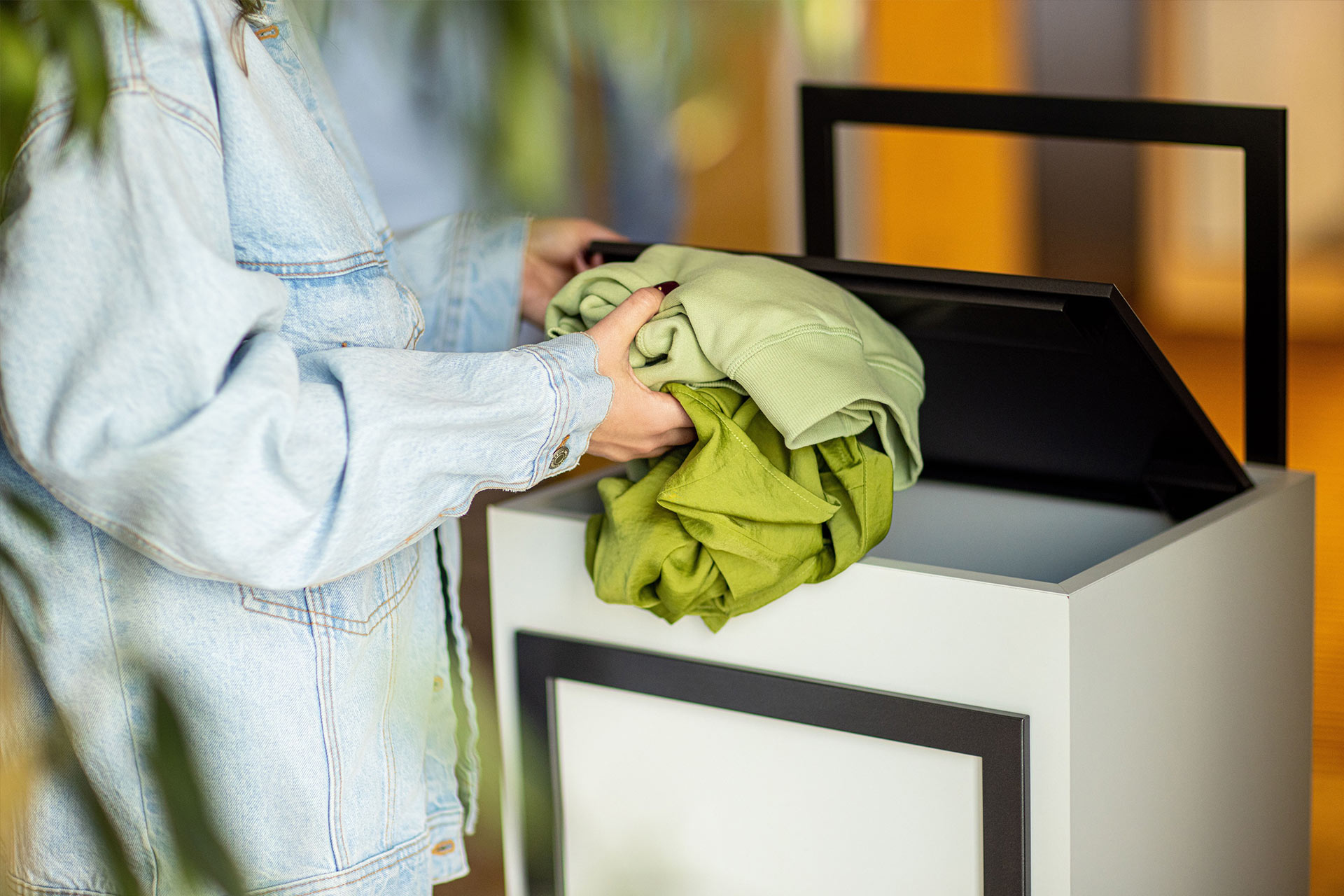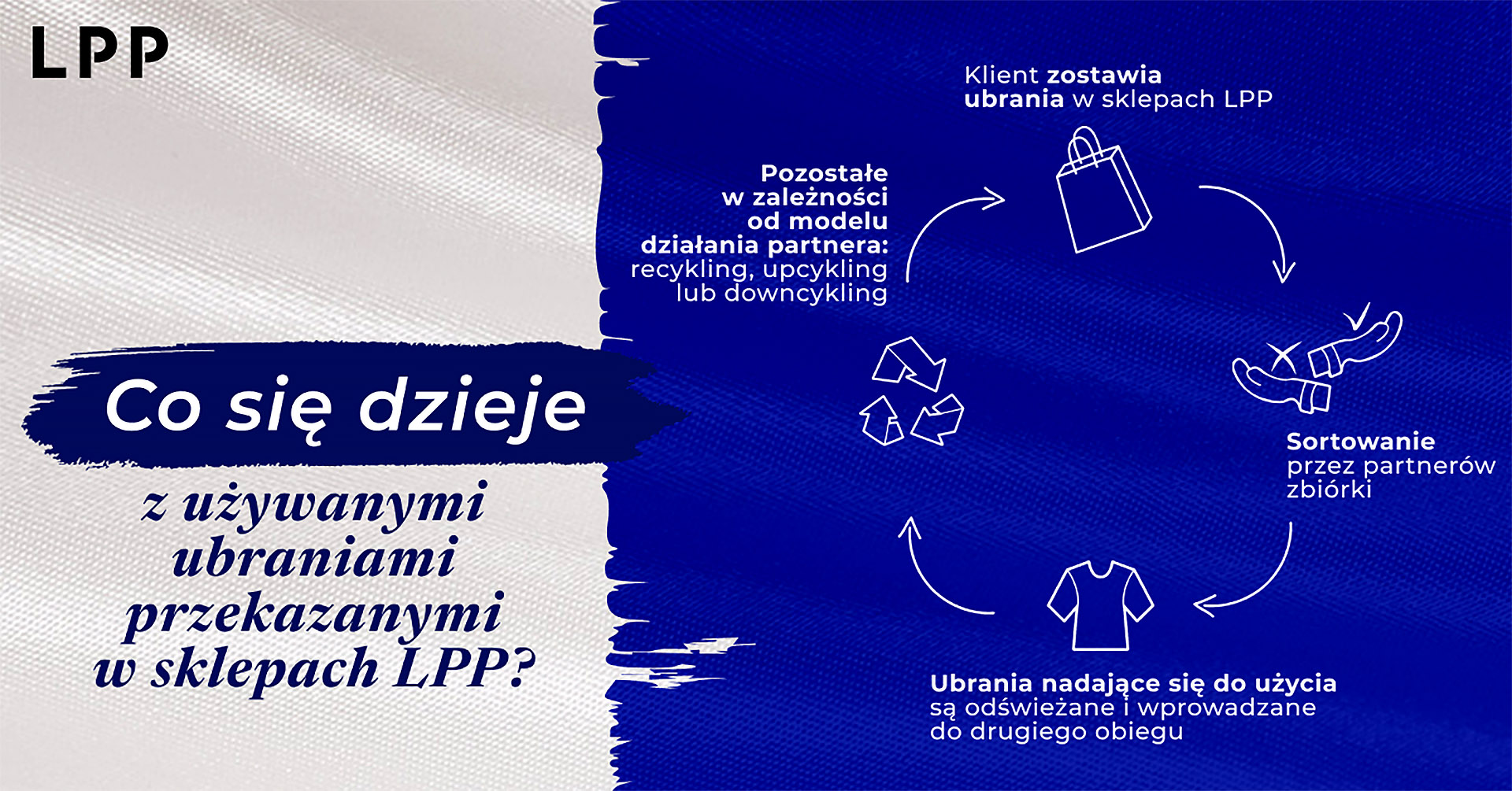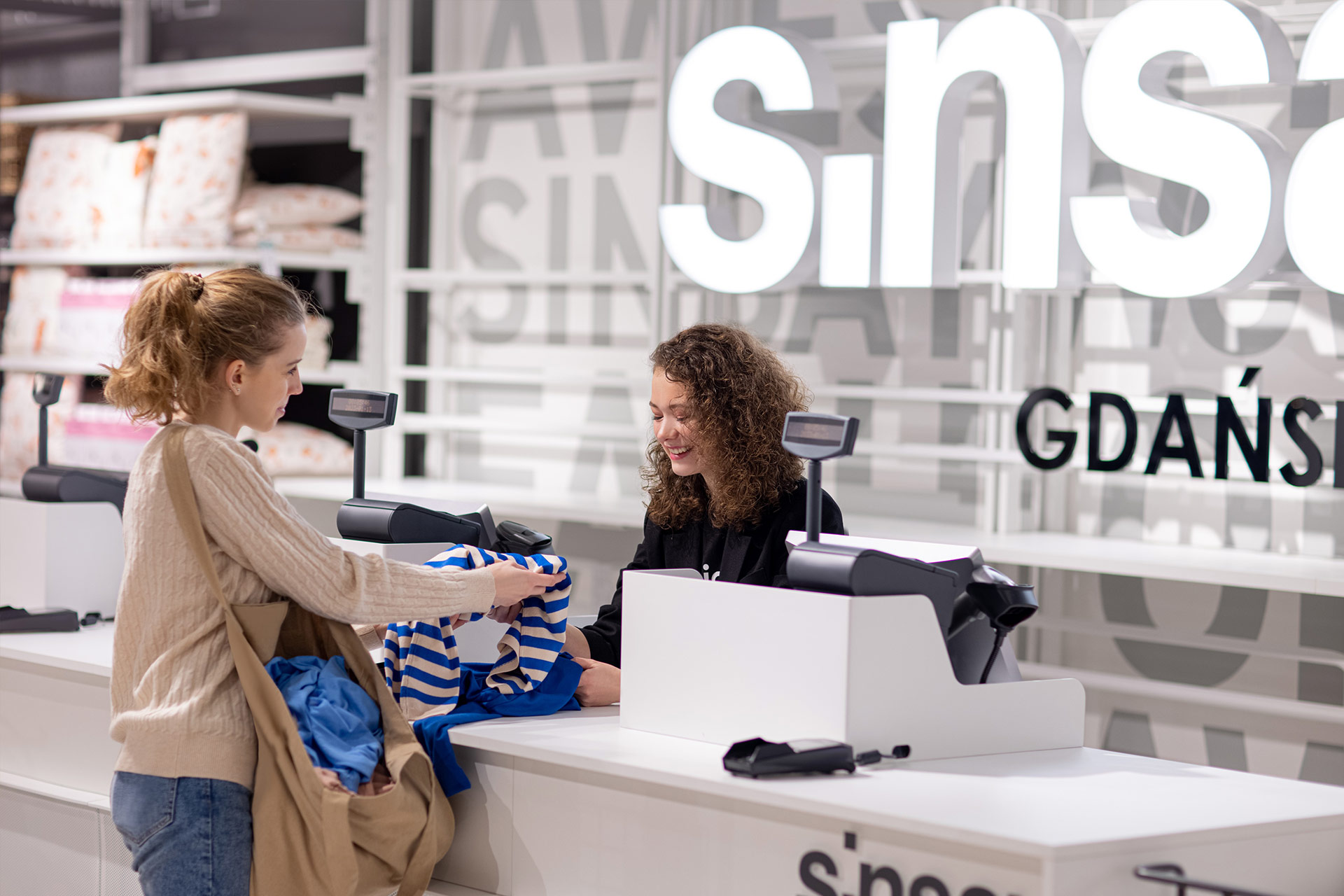LPP expands its collection of used clothing to foreign markets

The Polish clothing company, LPP, introduces the possibility of donating used clothes in its brand showrooms for foreign markets. The action has already started in Slovakia, the Czech Republic and Great Britain in February and will gradually cover other countries where LPP has showrooms. So far the initiative has operated in the company’s stationary sales network in Poland. The actions taken by the company fall within the scope of an EU directive introducing compulsory selective textile collection that will apply from 2025.
LPP has been implementing the collection of used clothes from any brand since 2018. Initially, only selected Reserved showrooms ran the action, but it was gradually expanded to cover further brands and locations in Poland. Last year, the initiative covered the whole stationary sales network in Poland where, thanks to the cooperation with the St. Brother Albert aid society, clothing in good condition is donated to homeless people. Other clothes are segregated for final processing. Currently, LPP is expanding the collection to foreign markets, launching it in its showrooms in Slovakia, the Czech Republic and Great Britain in February. In the next stages it will cover other countries where showrooms of the brands belonging to the Group operate.
The initiative is in line with the directive of the European Union1, announced in July 2023, which obligates the Member States to establish extended producer responsibility, including regulations concerning selective collection and proper segregation of textile waste. In the European Union currently just over 2 million tons of clothes and textile products are collected, which is about 38% of the clothes introduced in the market2. The changes resulting from the directive are intended to successively increase the implementation of selective collection of textiles and introduce producers’ responsibility for clothing waste management. This will also involve the need to incur the costs of collection, sorting, transport, preparation for further use, recycling or proper disposal of the clothes, as well as reporting, customer education and supporting innovation, in particular in the area of increasing the scale of recycling textiles. The selective collection of textile waste will apply in the whole European Union as of 1 January 2025. One of the markets in which solutions in the area of extended producer responsibility and selective collection of textiles have been implemented is France; however, many countries are still in the process of developing their own regulations.

– Bearing in mind the ongoing process of implementing the directive for the markets in which we operate, we wanted to adapt the rules for the operation of our collections to the local regulations. Therefore, despite previous announcements concerning their launch in our foreign network in 2023, we decided to wait for the response of individual countries to the planned regulations. We can see, however, that it is also a demanding process at the state level, and a grass-roots initiative on the part of business is still required. As a responsible producer, we launched our own collections abroad, in three countries to start with, but we will gradually expand the scope of the action to new markets – said Dorota Jankowska-Tomków, procurement and ESG director at LPP.
With the expansion of collection outside Poland, the legal aspects related to the specific nature of the local markets and the efficient collection organisation have become a challenge for LPP. This has created opportunities for the company to cooperate with recognised organisations operating in the area of second cycle of clothing production, such as ‘Ubrania Do Oddania’ (Clothes to Donate) in the Czech Republic and Ekocharita in Slovakia. As the company also operates outside the European Union, it has decided to launch collections also in the British market, where it is supported by the Yellow Octopus Group.
– We needed partners with experience in the comprehensive management of the selective collection of textiles to help us develop the spectrum of our activities in the area of circular fashion. For the whole collection process, we protect clothes from damage and staining, ensuring proper conditions of their storage. Also in transport and during segregation, the clothes should not be exposed to moisture and other harmful weather conditions. Our partners guarantee the quality of the collected textiles and their professional segregation into individual fractions. They are responsible for grouping clothes into those suitable for reuse, but also clothes made of materials with a specific composition where it is required to apply an appropriate recycling technique. With the involvement of partners, now our foreign sales network can also be part of the process of further development towards the circular economy – said Ewa Janczukowicz-Cichosz, sustainability expert at LPP.
As part of the collection process in LPP showrooms, you can bring clothes, footwear and accessories of any brand, which are then sorted and passed on in accordance with the textile waste management hierarchy. Depending on the condition of the products collected, they are reused, upcycled or recycled. Products that are suitable for use are refreshed by the partners and given a second life. A portion of the profit from each kilogram of collected clothes is donated to charities, including those in Poland, the Czech Republic and Slovakia.
– Selective collection, sorting and joining the second circuit are indispensable elements of circular fashion, from which there is no turning back in the clothing business. Our partnership with LPP in Slovakia proves that changes in the field of the circular economy occur in the market regardless of whether such regulations apply in a given market or not – said Tomáš Štefančík, Chief Sales Officer at Ekocharita.

Despite the fact that the new legislation concerning textile waste management covers only EU Member States, the company has decided to also adapt its programme to Great Britain, where it has recently strengthened its presence by opening new showrooms in prestigious locations in London.
– As of February, we have been supporting LPP in implementing circular activities in its showrooms in Great Britain. We are glad that together with this Polish company we can give clothes a second life, and through participation in the process of collection and sorting, we also prepare textiles that can be used in the recovery of raw materials in accordance with the idea of circular fashion – adds Jack Ostrowski, the founder of Yellow Octopus Group.
The Polish manufacturer intends to recycle the collected polyester clothes using a textile-to-textile technology, which is also in line with the assumptions of the EU directive on waste that points to the need for the industry to finance new recycling and sorting technologies. In 2022, the company established partnership with a Polish start-up, Use Waste, which is commissioned by the company to develop an innovative method of producing yarn from polyester textile waste. At present, the project has left the laboratory phase, and further work on the textile-to-textile technology is underway. In 2023 the company allocated PLN 1 million for this purpose.
– In the face of current climate challenges, the role of business does not end with providing customers with clothing. It is important that producers take responsibility for the textiles they produce. We want to support the industry in these activities, so we are happy that its biggest representative in Poland has chosen us as one of its process partners. Today we help the company in the Czech Republic, but we also plan to expand our work to other markets – says Przemysław Kwiatkowski, Partnership Manager at Ubrania Do Oddania.
1 The Directive of European Parliament and of the Council amending directive 2008/98/EC on waste, 5.7.2023.
2 European Comission (2021), Circular economy perspectives in the EU Textile sector, https://publications.jrc.ec.europa.eu/repository/handle/JRC125110
____________________________________
LPP is a Polish family company, one of the most dynamically developing in the clothing industry in the Central European region. It has been successfully operating in Poland and abroad for 30 years, selling collections in such prestigious capitals as London, Helsinki and Tel Aviv. LPP manages 5 fashion brands: Reserved, Cropp, House, Mohito and Sinsay, whose offer is available today in traditional and online sales in almost 40 markets worldwide. The company has a network of over 2,000 stores with a total area of 1.9 million m2 and distributes clothing and accessories to 3 continents every year. LPP also plays an important role, providing jobs for nearly 30,000 people in offices and sales structures in Poland, countries in Europe, Asia and Africa. The company is listed on the Warsaw Stock Exchange as part of the WIG20 index and belongs to the prestigious MSCI Poland index.

